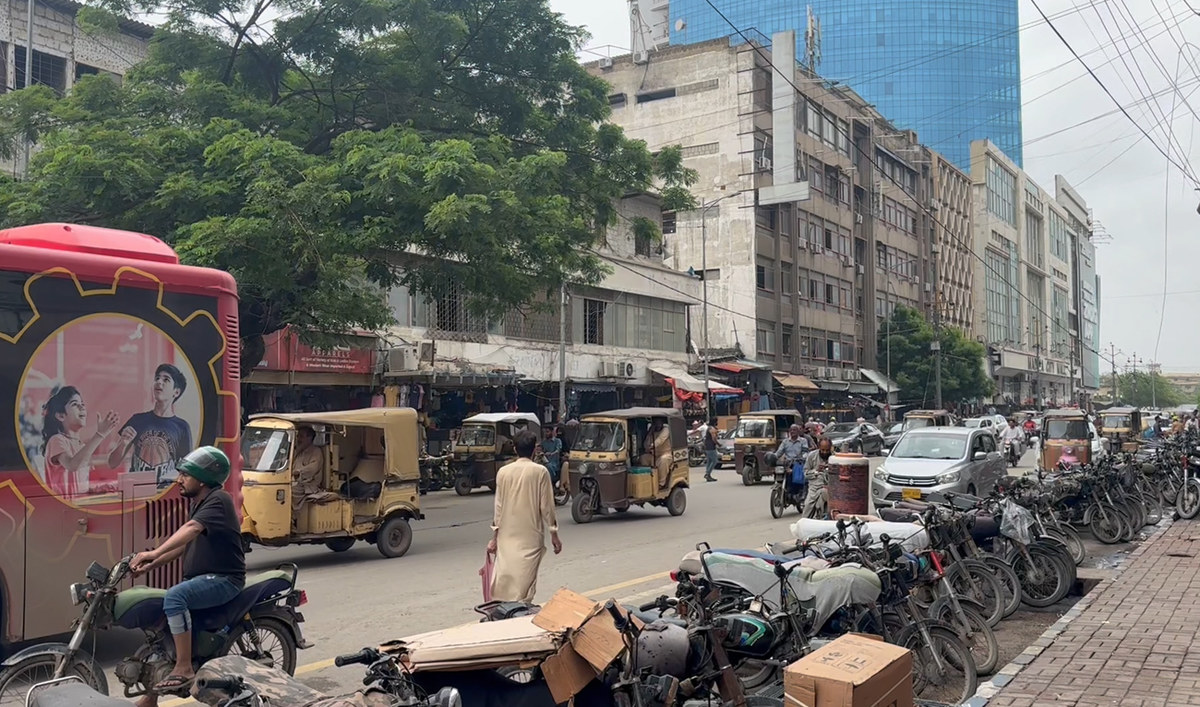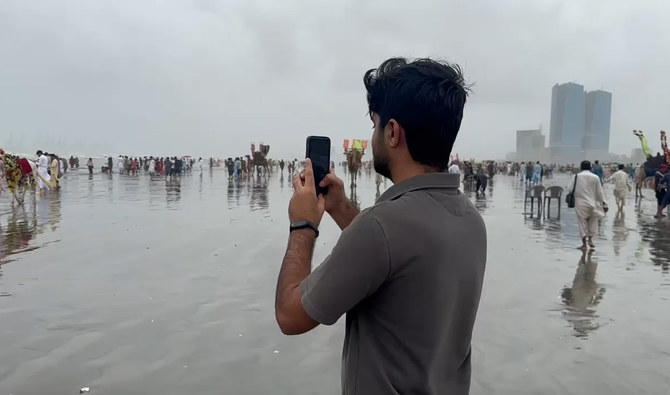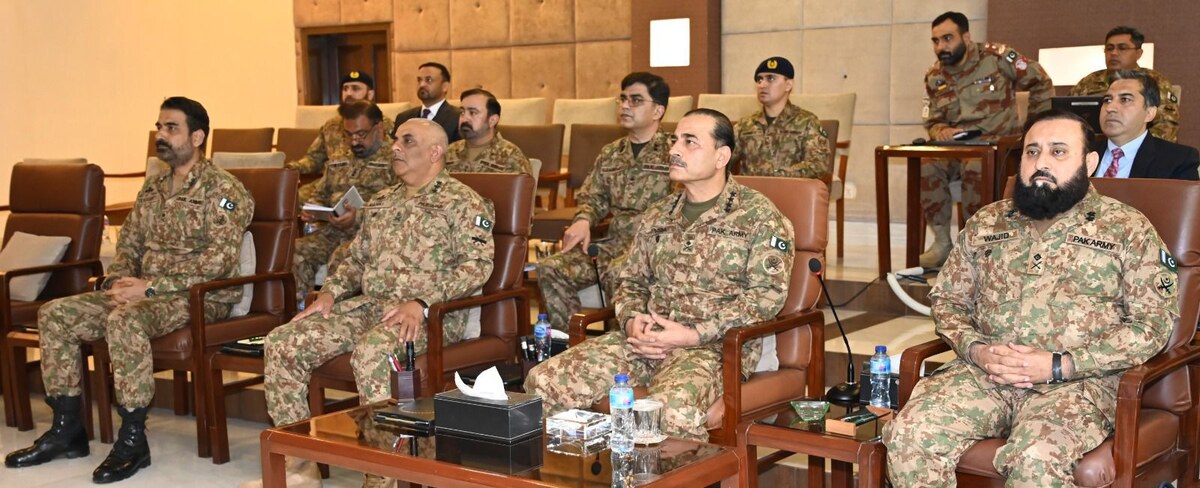KARACHI: Haseeb Ullah Malik received this advice from his father two weeks ago as he prepared to leave for a trip to Karachi from Islamabad:
“Don’t argue, just hand over your cellphone and wallet if you’re confronted by street criminals.”
After all, Malik was traveling to a city that was last month ranked by Forbes as the second-riskiest city for tourists, with a rating of 93.12 out of 100, second only to Venezuela’s Caracas, which had a score of 100, while Myanmar’s Yangon ranked third with a score of 91.67 out of 100.
Karachi, a metropolis of 20 million that hosts the stock exchange and central bank, has for decades been beset by armed violence. While an armed campaign led by the military against gangs and suspected militants in the city brought down crime rates after 2013, violence and crime rates have been on the rise again since last year, with shooting deaths in muggings and robberies once again becoming a daily headline.

Police stand guard on a street during an interview with Arab News in Karachi on August 3, 2024. (AN Photo)
According to data from police, 72 people were killed in street crimes in Karachi in the first half of this year.
“I have heard on the news that there are incidents of phone snatchings in Karachi and if you argue, they shoot you,” Malik, the tourist from Islamabad, told Arab News.
Karachi resident Muhammad Masood Ahmed Usmani agreed.
“The perception of Karachi has become very negative. In all of the world, Karachi is considered a hotspot for crime, this is how it is understood,” Usmani told Arab News.
“There is a lot of crime. Cars are being snatched, motorcycles are being stolen, people’s lives are being lost.”
“MEDIA OVERHYPE”
Karachi’s newly appointed police chief, Additional Inspector-General Javed Alam Odho, admitted crime in the city had increased but challenged the Forbes’ rating, blaming “media overhype” for the city’s negative image.
“It’s just hearsay that we’ve fallen behind cities like Timbuktu and Khartoum in Sudan,” Odho told Arab News. “I don’t think their [Forbes] rating is rational or logical.”
But Kashif Mushtaq, a prominent crime reporter in Karachi, disagreed with Odho, saying the media’s coverage of crime in Karachi reflected the ground realities.
“I believe that what’s happening [on the ground] is exactly what the media is showing,” Mushtaq said. “And since it’s being highlighted, as it is the [commercial] hub [of the country], we [media] perhaps show it more.”

Kashif Mushtaq, a prominent crime reporter, works on his laptop at the Karachi Press Club during an interview with Arab News in Karachi on August 4, 2024. (AN Photo)
But some tourists have had a different experience.
Infal Zafar, a local tourist from Punjab, said there was crime everywhere in the world and Karachi was no exception.
“If you look at the news about street crime, many incidents are reported even from New York where people are killed,” he said. “But in Karachi, there are many places where you don’t feel scared. For example, I am here at Clifton Beach, it feels like I was in a completely free environment. There is no fear of anything. My mobile is in my pocket, and I am with my family.”
Muhammad Sufiyan, another visitor from Pakistan’s eastern city of Faisalabad, also said his nerves had been calmed after visiting several areas in the metropolis.
“From what we had heard in the media about violence, killings, and such things, it’s not like that at all in Karachi,” Sufyan told Arab News as he visited Sea View beach, arguably the city’s most popular hangout spot on weekends.
“There is peace here, there are no issues.”

Commuters passing Zainab Market in Pakistan’s port city of Karachi on August 3, 2024. (AN Photo)






















